Discover the influential role of viziers in ancient Egypt, overseeing administration, justice, and governance while driving monumental projects. Explore their critical contributions to state stability and their lasting legacy in shaping one of history’s most remarkable civilizations.
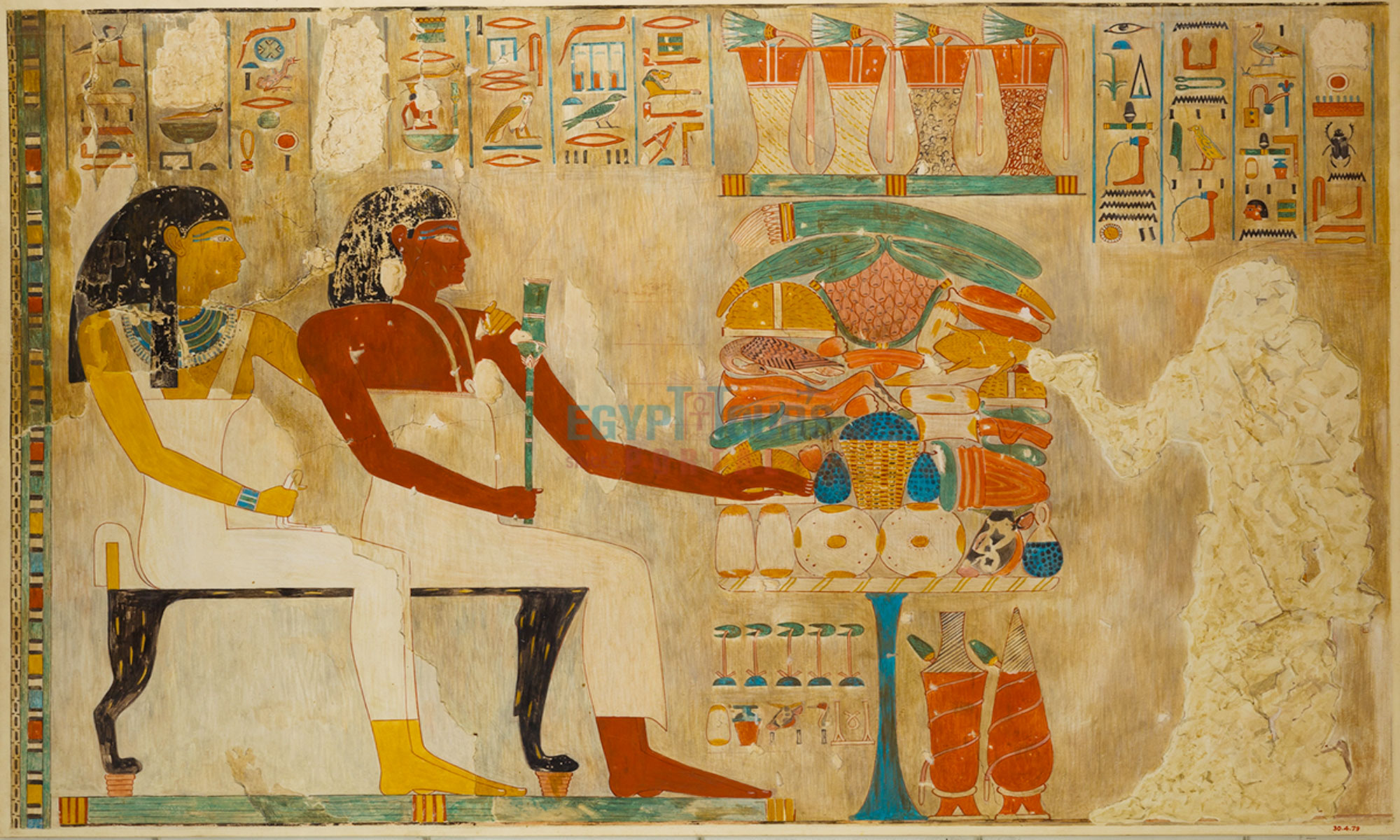
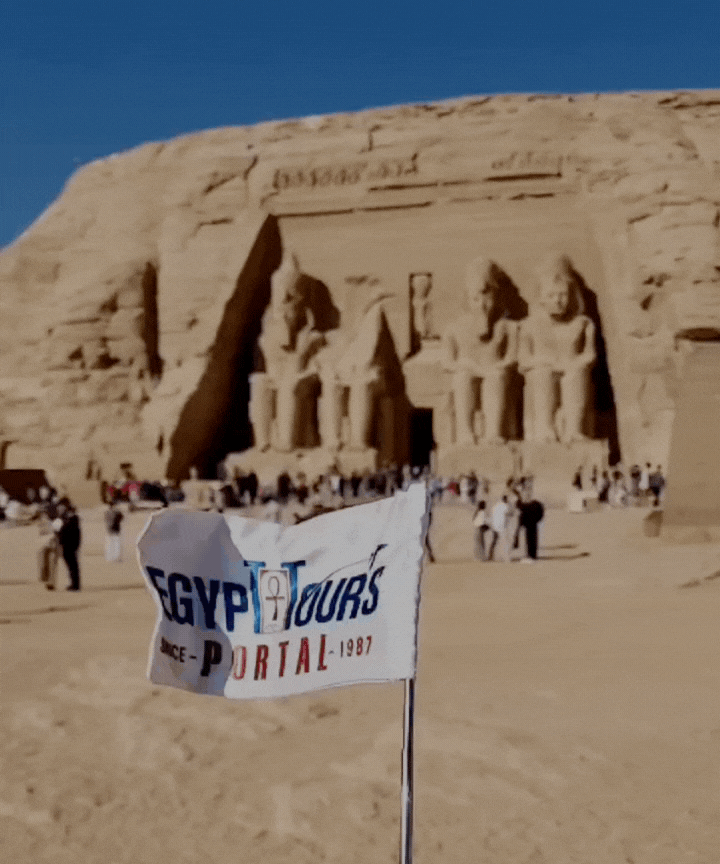
The Viziers of ancient Egypt were powerful figures who worked tirelessly behind the scenes to sustain the kingdom’s glory where pharaohs were revered as living gods. As the pharaoh’s closest confidant and the head of the government, the vizier wielded immense power, serving as the architect of administration, the arbiter of justice, and the guardian of order.
The role of the vizier was not just one of political authority but of profound responsibility. Tasked with upholding the sacred principle of truth, balance, and harmony Ma’at, the vizier ensured the smooth functioning of the state, from managing vast agricultural systems and overseeing monumental construction to resolving disputes and guiding foreign diplomacy. Through their wisdom, integrity, and unmatched organizational skills, the viziers were the unsung heroes of a civilization that stood the test of time.
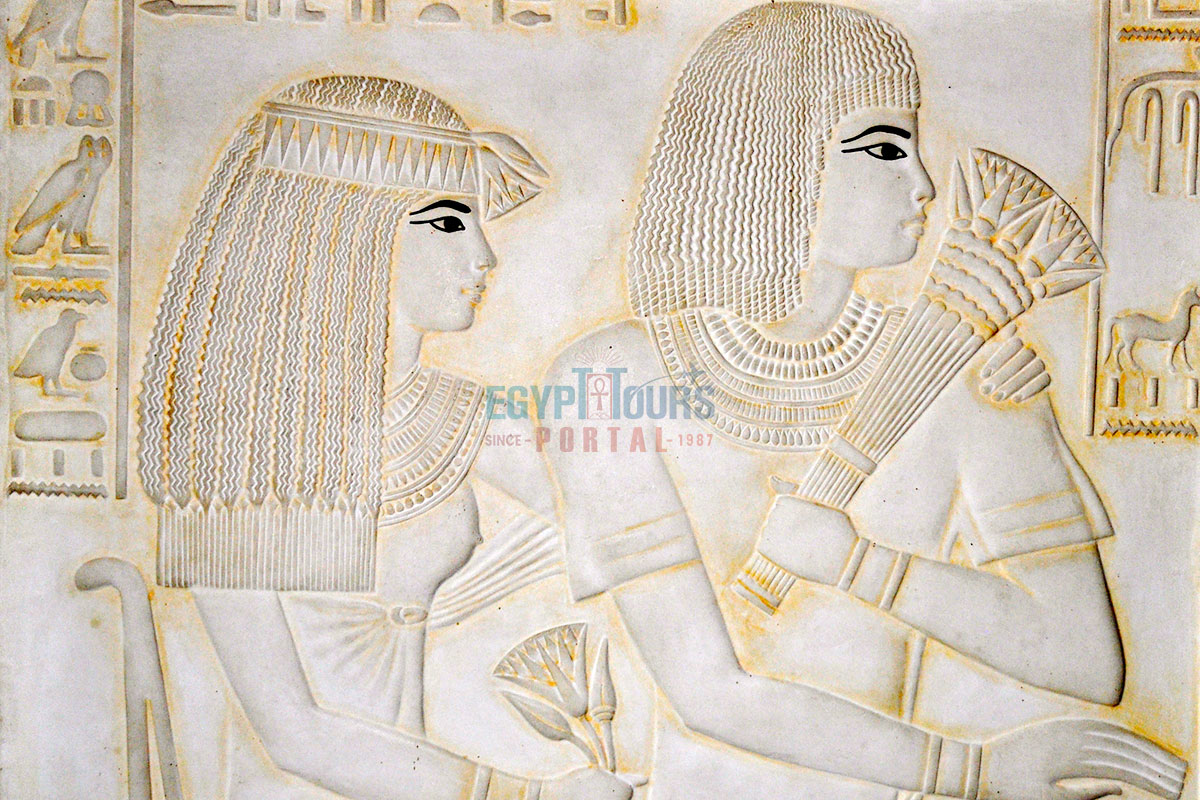
The vizier (tjaty or djat) held the highest office in Ancient Egypt after the Pharaoh, acting as the kingdom's chief administrator, judge, and policy enforcer. The office existed from the early Pharaonic period (c. 3150 BCE) and evolved to become a cornerstone of Egyptian governance. Viziers were integral to maintaining the efficiency and stability of the state, serving as the pharaoh's most trusted advisor and implementing royal decrees.
The vizier’s duties spanned nearly every aspect of Egyptian administration. They oversaw the collection and redistribution of taxes, managed the central granaries and treasury, and supervised state archives. Additionally, they coordinated construction projects, from irrigation canals to monumental structures like temples and pyramids, ensuring that all were completed on schedule and within the allocated resources.
Judicially, the vizier functioned as the head of Ancient Egyptian Justice, the chief judge, by hearing cases ranging from inheritance disputes to criminal trials. This role required adherence to the principles of Ma’at (truth, balance, and order), which guided their decisions and reinforced their authority as dispensers of justice. The vizier also handled foreign correspondence, trade negotiations, and the logistics of military campaigns and all of the Battles of Ancient Egypt.
From the Fifth Dynasty onward (c. 2494 BCE), the vizier's position was institutionalized as the highest civilian office, with their responsibilities meticulously recorded in texts like the Instruction of Rekhmire. This document, found in the tomb of the New Kingdom of Ancient Egypt vizier Rekhmire, highlights the expectations for integrity, impartiality, and efficiency that defined the role.
Several viziers have left enduring legacies that shaped Egypt’s history, such as:

The viziers wielded unparalleled influence in Ancient Egypt, acting as the pharaoh’s right hand and exercising authority over all state affairs. Their power stemmed not only from their official duties but also from their proximity to the pharaoh, which often granted them informal influence over royal decisions. In addition to managing the kingdom’s bureaucracy, viziers played a pivotal role in shaping domestic and foreign policies.
They coordinated with regional governors (nomarchs) and lesser officials to ensure efficient governance, while also overseeing Egypt’s vast network of trade, which included exchanges with regions like the Levant, Nubia, and Mesopotamia. The viziers’ political prestige was evident in their supervision of military operations. Although generals led the army in battle, they reported directly to the vizier, who approved strategic decisions and managed military logistics.
For instance, during Thutmose III’s reign (1479–1425 BCE), Rekhmire played a critical role in organizing campaigns that expanded Egypt’s empire. This concentration of power made the vizier’s loyalty to the pharaoh paramount. To safeguard the throne, pharaohs often appointed trusted relatives or close allies as viziers. However, some viziers, like Amenemhat I, rose to power themselves, demonstrating the potential for political maneuvering within this influential office.

Law and justice were central to the vizier’s role. Acting as the chief judge of Egypt, the vizier presided over the High Court, handling cases of national importance and ensuring the consistent application of the law across the kingdom. Their decisions were guided by the principle of Ma’at, a sacred concept embodying truth, fairness, and cosmic balance.
The Instruction of Rekhmire provides a detailed account of how viziers were expected to conduct their judicial duties. They were to remain impartial, avoid favoritism, and consider the welfare of all parties involved. The vizier also heard appeals from lower courts, serving as the final authority in legal disputes.
Criminal cases, including theft and assault, were documented in the Great Prison, a facility under the vizier’s purview. Land disputes, inheritance claims, and tax disagreements were also common cases brought before the vizier. To ensure fairness, the vizier relied on a comprehensive registry of land ownership, population censuses, and criminal records.
The vizier’s role in justice extended to upholding severe penalties for breaches of Ma’at. For example, false witnesses were punished by drowning, symbolizing the removal of disorder from society. This strict adherence to justice reinforced the vizier’s role as the embodiment of order in the kingdom.
Discover How the Ancient Egyptians Kept Law and Order Across their Cities and How They Punished the Guilty.
Read More
In a civilization where politics and religion were inseparable, the vizier’s role extended deeply into religious affairs. They oversaw temple economies, ensured the proper performance of rituals, and managed the resources needed for offerings to the Egyptian Gods and Goddesses. Ancient Egyptian Temples were significant economic hubs, and the vizier ensured their smooth operation by regulating labor, supplies, and finances.
The vizier also had a hand in appointing high priests, including those of major temples like Karnak Temple Complex, and more great structures. This power further cemented their influence in both religious and political spheres. Some viziers, like Imhotep, held dual roles as religious leaders and state officials, exemplifying the intersection of faith and governance.
The vizier’s alignment with Ma’at also had religious connotations. They fulfilled a divine mandate by maintaining societal harmony and balance, ensuring the gods’ favor for the pharaoh and the nation. This spiritual aspect of their duties reinforced their position as a bridge between the mortal and divine realms.
Examine marvelous facts about the rituals, beliefs, and traditions of the religion of the ancient Egyptians.
Read More
The relationship between the pharaoh and the vizier was a cornerstone of Ancient Egypt’s governance, blending trust, collaboration, and strategic interaction. The pharaoh considered a living god on Earth, delegated immense authority to the vizier, making the latter responsible for the administration and smooth functioning of the kingdom. In this relationship, loyalty was paramount, as the vizier’s proximity to the pharaoh afforded significant influence over state affairs and royal policies.
The vizier’s role required them to act as the pharaoh’s extension, translating divine decrees into actionable governance. Their duties included overseeing taxation, managing military logistics, and ensuring that justice was dispensed according to the principles of Ma’at. This reliance on the vizier created a bond of trust, yet it also required careful navigation of the balance between power and loyalty.
While the pharaoh retained ultimate authority, viziers like Rekhmire, who served Thutmose III, and Ptahhotep, who advised Djedkare Isesi, were instrumental in shaping royal policies and maintaining order. Their role often involved mediating between the pharaoh and local officials, ensuring that the monarch’s will was implemented efficiently across the land. The Instruction of Rekhmire explicitly emphasized that a vizier must act with impartiality, avoiding favoritism and maintaining the trust of both the pharaoh and the people.
The dual-vizier system introduced during the New Kingdom (c. 1550–1070 BCE) exemplifies how this relationship was structured to prevent excessive centralization of power. By appointing one vizier for Upper Egypt and another for Lower Egypt, pharaohs like Amenhotep III ensured that no single individual could wield disproportionate influence. This division not only streamlined governance in a geographically expansive kingdom but also reinforced the principle of balance that was central to Egyptian ideology.
The relationship was not without risks. While loyalty was the foundation of the vizier’s position, their proximity to power occasionally led to tensions. Instances of viziers rising to kingship, such as Amenemhat I in the 12th Dynasty, underscore the potential for political ambition within the role. Nevertheless, the majority of viziers maintained their allegiance to the pharaoh, recognizing that their authority was derived from the ruler’s divine mandate.

Viziers were architects of Ancient Egyptian society and culture, playing a pivotal role in shaping the administration, infrastructure, and intellectual traditions of the kingdom. Through their governance, they ensured the efficient functioning of Egypt’s vast bureaucracy, which supported the state’s agricultural economy, trade networks, and monumental construction projects.
One of the viziers’ most significant contributions was in infrastructure development. They oversaw the construction and maintenance of vital projects such as irrigation canals, roads, and granaries, which were essential for sustaining the Economy of Ancient Egypt. The construction of monumental architecture, including pyramids, temples, and tombs, also fell under their supervision. Viziers like Imhotep, who designed the Step Pyramid of Djoser, and Hemiunu, the architect of the Great Pyramid of Giza, left legacies that defined Egypt’s cultural and architectural identity.
Culturally, viziers like Ptahhotep contributed to Egypt’s intellectual heritage through their writings. The Maxims of Ptahhotep, a collection of wisdom literature, offered guidance on ethical leadership, social harmony, and personal conduct. This text became a foundational document for future generations, emphasizing the principles of justice and responsibility that underpin Egyptian governance.
The vizier’s role extended to religious practices, where they ensured that temple rituals were performed correctly and that the gods received their due offerings. By maintaining the temples and their associated economies, viziers reinforced the spiritual and cultural framework of Egyptian society. Their integration of governance, religion, and culture established a legacy that shaped Egypt’s identity as a civilization of harmony and order.

Ascending to the role of vizier required exceptional qualifications, rigorous training, and a deep commitment to the principles of Ma’at. Most viziers were drawn from the ranks of the educated elite, often beginning their careers as scribes. Literacy and proficiency in mathematics, law, and accounting were essential, as the vizier managed state records, taxation, and construction budgets.
Training often included apprenticeship under experienced officials, where candidates learned the intricacies of governance, legal procedures, and military logistics. Familiarity with architecture and engineering was also crucial, as the vizier oversaw major construction projects.
Equally important were moral integrity and impartiality. The vizier was expected to embody the values of Ma’at, ensuring fairness and harmony in all aspects of governance. This combination of intellectual capability, ethical responsibility, and practical expertise ensured that the vizier could fulfill their duties as the pharaoh’s most trusted deputy and the kingdom’s chief administrator.
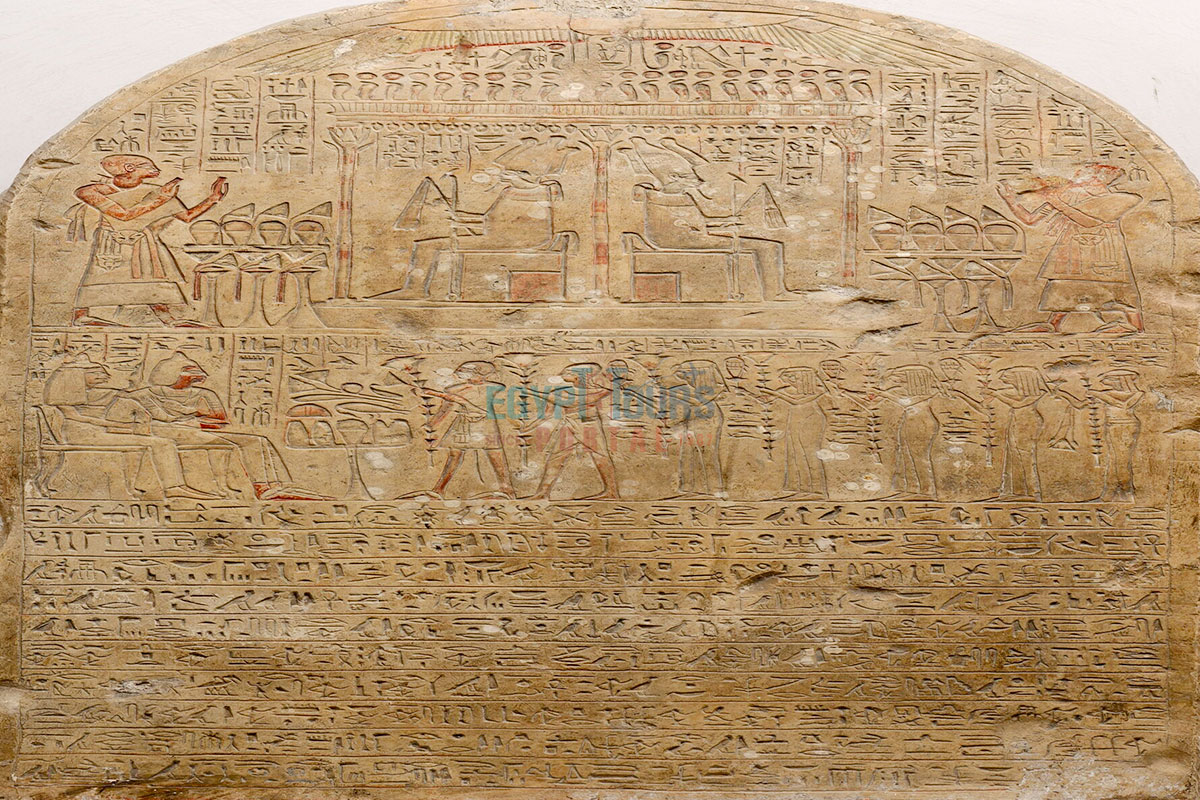
A vizier’s daily life was a delicate balance of immense responsibilities, constant challenges, and significant privileges. Each day began with consultations with the pharaoh, during which the vizier reported on the kingdom’s status and received instructions for implementing royal policies.
The vizier’s schedule included overseeing the operation of governmental departments, such as the treasury, granaries, and judicial system. They adjudicated legal cases, often acting as the final authority in disputes, and reviewed tax records to ensure the smooth collection and redistribution of resources. The vizier also coordinated construction projects, managing labor forces and ensuring that monumental works, like temples and pyramids, adhered to royal specifications.
Challenges in the vizier’s role were numerous. They were responsible for maintaining harmony across a vast and diverse kingdom, resolving disputes impartially, and managing the competing interests of local officials, priests, and military leaders. Navigating court politics required diplomatic skill, as the vizier often mediated between the pharaoh and other influential figures.
Despite these challenges, the vizier enjoyed considerable privileges. Their position granted them access to wealth, land, and proximity to the pharaoh, ensuring their influence in both political and social spheres. Viziers were often buried in elaborate tombs near their pharaohs, symbolizing their esteemed status and enduring legacy. The tomb of Rekhmire, for example, features detailed inscriptions showcasing the vizier’s responsibilities and achievements, underscoring the prestige associated with the role.
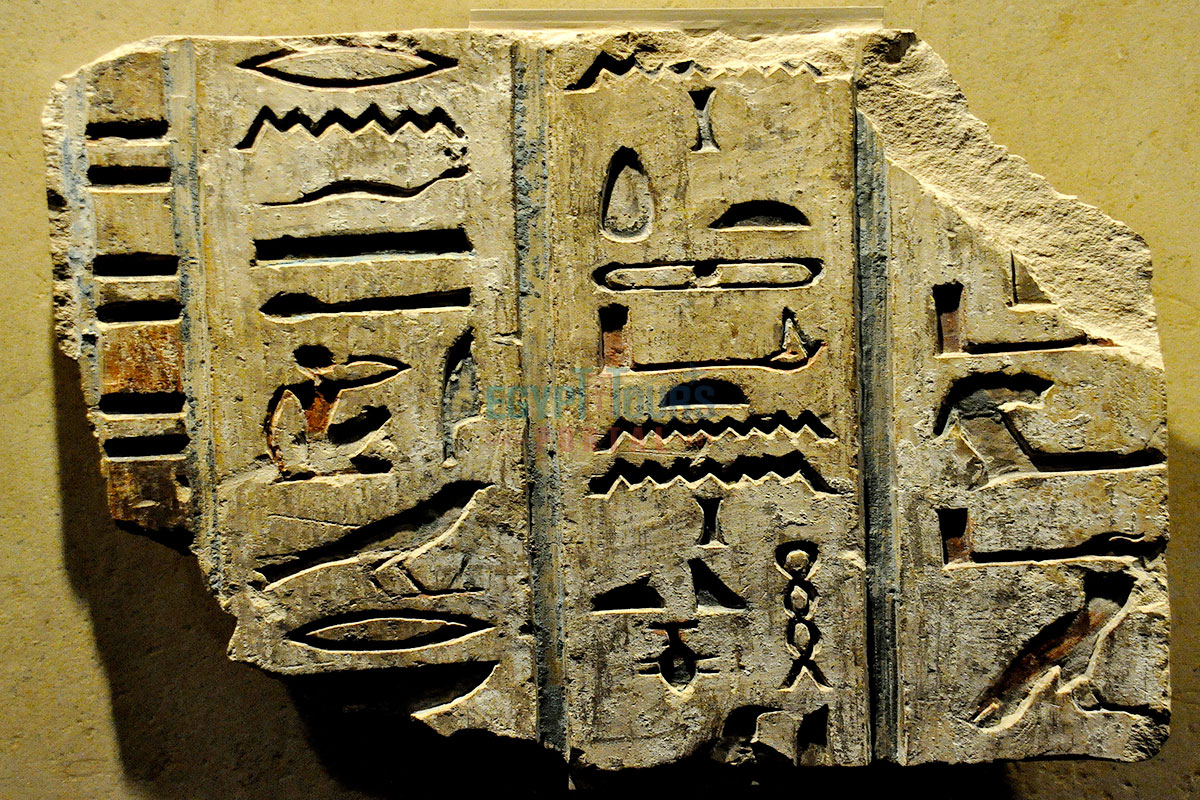
The decline of the vizier’s influence reflects the broader political changes that shaped Egypt’s history. During the Third Intermediate Period (c. 1070–664 BCE), Egypt experienced political fragmentation and decentralization, which weakened the centralized authority of the pharaoh and, by extension, the vizier.
As regional governors (nomarchs) and foreign powers gained prominence, the vizier’s role diminished. By the time of the Ptolemaic and Roman periods, the office had become largely ceremonial, with its responsibilities divided among other administrative officials introduced by foreign rulers. Despite this decline, the vizier’s legacy as a symbol of efficient governance and loyal service endured, influencing subsequent administrative systems.
The viziers of ancient Egypt were pivotal figures in sustaining the kingdom’s political, social, and cultural structure. As the pharaoh's most trusted advisors and the highest-ranking officials, they wielded immense power and responsibility, shaping the administration, justice system, and infrastructure of the state.
Guided by the principles of Ma’at (truth, balance, and harmony), their integrity and organizational skills ensured the stability and prosperity of Egypt. While the role of the vizier declined with the decentralization of power, their legacy as architects of governance and loyal stewards of the pharaoh's vision remains an enduring symbol of ancient Egyptian brilliance.
Exploring Egypt's countless gems and wonders by booking one of our magnificent Egypt tours from USA or Nile Cruises will make clear the power and influence Egypt had on the history of the world, giving a whole new meaning to the concept of an adventure tour.
Private 4 Days Cairo Tour Packages for American Travelers 4 days Cairo Egypt Tour pa...
Tour Location: Cairo – Giza...
5 Days Cairo and Alexandria Tour Package For American Travelers 5 days Cairo and Ale...
Tour Location: Cairo/Giza/Alexandria...
6 Days Cairo, Luxor & Aswan Tour Package For American Travelers 6 days Cairo, Lu...
Tour Location: Cairo/Giza/Aswan/Luxor...
Amazing 7 Days Cairo and Hurghada Holiday for American Travelers 7 Days Cairo & ...
Tour Location: Cairo – Giza – Hurgh...
The vizier was the highest-ranking official after the Pharaoh, responsible for overseeing the administration, legal systems, and economic affairs of Egypt. The vizier also acted as an advisor to the Pharaoh.
The vizier's duties included supervising the government bureaucracy, managing taxes, maintaining law and order, overseeing construction projects, and serving as the chief judge.
Viziers were typically appointed by the Pharaoh based on merit, often from among the elite class. Many viziers were highly educated scribes or military leaders.
The vizier had almost absolute power in matters of state administration, legal decisions, and financial matters. In some cases, the vizier could even issue orders in the Pharaoh's name when the king was absent.
One of the most famous viziers was Imhotep, who served Pharaoh Djoser. He is known for his contributions to medicine, architecture (designing the Step Pyramid), and religious reforms.
Yes, the vizier was often involved in religious duties, particularly in ensuring that the Pharaoh’s divine rule was upheld and supporting temple construction and religious festivals.
The vizier was a trusted advisor to the Pharaoh, responsible for executing the Pharaoh’s policies. The relationship was essential for maintaining order and governance in Ancient Egypt.
The vizier often acted as the chief judge in Egypt, overseeing legal matters and making final decisions on cases. This role was critical in maintaining justice and order in society.
The role of the vizier became more centralized and powerful over time, especially during the Middle Kingdom when the vizier began to handle nearly all administrative duties on behalf of the Pharaoh.
To become a vizier, one had to be highly educated, often trained as a scribe or military officer, and trusted by the Pharaoh. The vizier was expected to have wisdom, leadership skills, and the ability to manage large-scale state operations.
The entire country of Egypt deserve to be explored with its every heavenly detail but there are places that must be seen before any other such as the breathtaking Hurghada's red sea, The wonders of Cairo the pyramids of Giza, the great sphinx, the Egyptian Museum, Khan El Khalili Bazaar, the wonders of Luxor like Valley of the Kings, Karnak & Hatshepsut temple and the wonders of Aswan such as Abu Simbel temples, Philea temple, Unfinished obelisk and The Wonders of Alexandria like Qaitbat Citadel, Pompey's Pillar and Alexandria Library. Read more about the best places to visit in Egypt.
If you want to apply for a Visa On Arrival that lasts for 30 days then you should be one of the eligible countries, have a valid passport with at least 6 months remaining and pay 25$ USD in cash, as for the E-Visa for 30 day you should have a valid passport for at least 8 months, complete the online application, pay the e-visa fee then print the e-visa to later be presented to the airport border guard. You could also be one of the lucky ones who can obtain a free visa for 90 days. Read more about Egypt travel visa.
Egypt has a variety of delicious cuisines but we recommend “Ful & Ta’meya (Fava Beans and Falafel)”, Mulukhiya, “Koshary”, a traditional Egyptian pasta dish, and Kebab & Kofta, the Egyptian traditional meat dish.
The best time to travel to Egypt is during the winter from September to April as the climate becomes a little tropical accompanied by a magical atmosphere of warm weather with a winter breeze. You will be notified in the week of your trip if the Climate is unsafe and if any changes have been made.
You should pack everything you could ever need in a small bag so you could move easily between your destinations.
We have been creating the finest vacations for more than 20 years around the most majestic destinations in Egypt. Our staff consists of the best operators, guides and drivers who dedicate all of their time & effort to make you have the perfect vacation. All of our tours are customized by Travel, Financial & Time consultants to fit your every possible need during your vacation. It doesn't go without saying that your safety and comfort are our main priority and all of our resources will be directed to provide the finest atmosphere until you return home.
You will feel safe in Egypt as the current atmosphere of the country is quite peaceful after the government took powerful measures like restructuring the entire tourist police to include all the important and tourist attractions in Egypt. Read more about is it safe to travel to Egypt.
Wear whatever feels right and comfortable. It is advised to wear something light and comfortable footwear like a closed-toe shoe to sustain the terrain of Egypt. Put on sun block during your time in Egypt in the summer to protect yourself from the sun.
The best activity is by far boarding a Nile Cruise between Luxor and Aswan or Vise Versa. Witness the beauty of Egypt from a hot balloon or a plane and try all the delicious Egyptian cuisines and drinks plus shopping in old Cairo. Explore the allure and wonders of the red sea in the magical city resorts of Egypt like Hurghada and many more by diving and snorkeling in the marine life or Hurghada. Behold the mesmerizing western desert by a safari trip under the heavenly Egyptian skies.
There are a lot of public holidays in Egypt too many to count either religious or nation, the most important festivals are the holy month of Ramadan which ends with Eid Al Fitr, Christmas and new years eve. Read more about festivals & publich holidays in Egypt.
Egypt is considered to be one of the most liberal Islamic countries but it has become a little bit conservative in the last couple of decades so it is advised to avoid showing your chest, shoulders or legs below the knees.
Arabic is the official language and Most Egyptians, who live in the cities, speak or understand English or at least some English words or phrases. Fewer Egyptians can speak French, Italian, Spanish, and German. Professional tour guides, who work in the tourism sector, are equipped to handle visitors who cannot speak Arabic and they will speak enough English and other languages to fulfill the needs of all our clients.
The fastest way is a car, of course, a taxi. If you are in Cairo ride a white taxi to move faster or you could board the fastest way of transportation in Egypt metro if the roads are in rush hour.
The temperature in Egypt ranges from 37c to 14 c. Summer in Egypt is somehow hot but sometimes it becomes cold at night and winter is cool and mild. The average of low temperatures vary from 9.5 °C in the wintertime to 23 °C in the summertime and the average high temperatures vary from 17 °C in the wintertime to 32 °C in the summertime. The temperature is moderate all along the coasts.
It is the home of everything a traveler might be looking for from amazing historical sites dating to more than 4000 years to enchanting city resorts & beaches. You will live the vacation you deserve as Egypt has everything you could possibly imagine.









